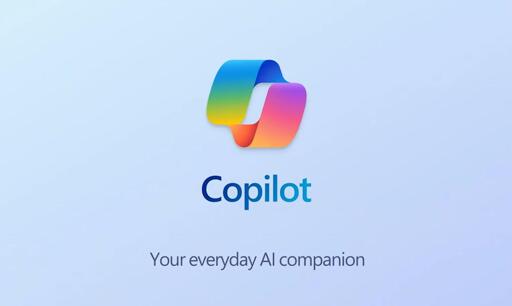Amazon Doubles Prime Video Ads Per Hour
-
This post did not contain any content.

Exclusive: Amazon Doubles Ad Load on Prime Video
The move could lower CPMs but potentially hurt performance.

(www.adweek.com)
Amazon is clearly struggling financially, and needs the revenue. Think of the starving investors!
-
Still less than cable/broadcast which runs fifteen to twenty minutes of ads per hour. Given time, I’m sure streaming will catch up.
Exactly, I miss more ads in my life*. Amazon is truly lacking.
-
I'll do you one better. I'm upping the ads on mine by 1,000,000x.
You know what ? I’m starting a Jellyfin only to stream all the ads !
-
This post did not contain any content.

Exclusive: Amazon Doubles Ad Load on Prime Video
The move could lower CPMs but potentially hurt performance.

(www.adweek.com)
I'm old, so many may not relate. I remember when the big selling point of this newfangled "cable TV" thing was zero ads. Can you imagine that?
Yeah, I have Prime for the savings on shipping. Got the Kodi addon for watching Prime, never used it except to watch The Expanse a few years ago. Would have been fucking enraged if I had seen ads cut into that. Fuck am I paying for?!
-
This post did not contain any content.

Exclusive: Amazon Doubles Ad Load on Prime Video
The move could lower CPMs but potentially hurt performance.

(www.adweek.com)
Arghhhhhh

 ️
️
 ️
️
 ️
️
 ️🦜🦜🦜
️🦜🦜🦜 ️
️ ️
️ ️
️
If you wabt to pirate risk free, use Internetarchive.org. Didn't require a single download to watch 20 seasons of South Park. -
I'm old, so many may not relate. I remember when the big selling point of this newfangled "cable TV" thing was zero ads. Can you imagine that?
Yeah, I have Prime for the savings on shipping. Got the Kodi addon for watching Prime, never used it except to watch The Expanse a few years ago. Would have been fucking enraged if I had seen ads cut into that. Fuck am I paying for?!
Cable tv wasn’t invented to have zero ads . The original selling point of cable tv was to provide broadcast tv to those that couldn’t pick up OTA broadcasts.
-
Still less than cable/broadcast which runs fifteen to twenty minutes of ads per hour. Given time, I’m sure streaming will catch up.
Just a matter of time until you can't chose what to watch on the lowest tier, you have to follow their playlist of what you should watch.
And we have come full circle back to broadcast TV
-
Just a matter of time until you can't chose what to watch on the lowest tier, you have to follow their playlist of what you should watch.
And we have come full circle back to broadcast TV
The irony of streaming services
-
Arghhhhhh

 ️
️
 ️
️
 ️
️
 ️🦜🦜🦜
️🦜🦜🦜 ️
️ ️
️ ️
️
If you wabt to pirate risk free, use Internetarchive.org. Didn't require a single download to watch 20 seasons of South Park.Maybe delete this. The archive is being viciously targeted and this screenshot could bite them in the ass
-
Maybe delete this. The archive is being viciously targeted and this screenshot could bite them in the ass
Is it a secret or something? I found it by googling the name of the first episode. First page of Google. Isn't labeled as South Park though.
-
You know what ? I’m starting a Jellyfin only to stream all the ads !
If you make it only toonami ads I'm in tho
-
Is it a secret or something? I found it by googling the name of the first episode. First page of Google. Isn't labeled as South Park though.
No but it's proven that the powers that be are taking screen shots from others as evidence. There was a case on reddit where this happened recently where people's screenshots admitting about IPTV was used as evidence
-
No but it's proven that the powers that be are taking screen shots from others as evidence. There was a case on reddit where this happened recently where people's screenshots admitting about IPTV was used as evidence
Are companies trying to get it banned or something? Prosecute users?
-
I'm old, so many may not relate. I remember when the big selling point of this newfangled "cable TV" thing was zero ads. Can you imagine that?
Yeah, I have Prime for the savings on shipping. Got the Kodi addon for watching Prime, never used it except to watch The Expanse a few years ago. Would have been fucking enraged if I had seen ads cut into that. Fuck am I paying for?!
I think about this all the time. Kids today have no experience of the media without ads. Like we had commercials, but imagine Mr. Rogers stopping his show every 5 mins to sell you athletic greens and test boosters.
This image has a totally different context today then when it was first created

Anyways, these kids will grow up and make even worse and more annoying ads. They'll be the next Gen of marketing executives in a decade or two. There's nothing we can do about it.
-
Are companies trying to get it banned or something? Prosecute users?
In rare cases, yes

Film companies demand names of Reddit users who discussed piracy in 2011
Reddit urges US court to protect anonymity of six users who mentioned piracy.

Ars Technica (arstechnica.com)
Also.... Reddit lost

Reddit must share IP addresses of piracy-discussing users, film studios say
Reddit says First Amendment rights protect it from having to disclose users’ info.

Ars Technica (arstechnica.com)
-
Cable tv wasn’t invented to have zero ads . The original selling point of cable tv was to provide broadcast tv to those that couldn’t pick up OTA broadcasts.
I feel like you weren't there, in that time and place. Or maybe you were in some weird pocket where OTA wasn't available? Can't remember anyone bitching about lack of antennae service. Yeah, it could be sketchy, but I think most of us could drag in ABC, NBC, CBS and PBS.
-
I think about this all the time. Kids today have no experience of the media without ads. Like we had commercials, but imagine Mr. Rogers stopping his show every 5 mins to sell you athletic greens and test boosters.
This image has a totally different context today then when it was first created

Anyways, these kids will grow up and make even worse and more annoying ads. They'll be the next Gen of marketing executives in a decade or two. There's nothing we can do about it.
Fucking weird, isn't it? Another rant would be about where is all the advertising money coming from?! Imagining being a buyer, I'd have to wonder how well my spend would be profiting.
A couple of decades ago I played around with being a salesman. Top advice was to try this ad, try that ad, compare results. Surely these people are finding revenue from spending on these ads? It just seems impossible to me that there's profit for all of these cockroaches.
-
I think about this all the time. Kids today have no experience of the media without ads. Like we had commercials, but imagine Mr. Rogers stopping his show every 5 mins to sell you athletic greens and test boosters.
This image has a totally different context today then when it was first created

Anyways, these kids will grow up and make even worse and more annoying ads. They'll be the next Gen of marketing executives in a decade or two. There's nothing we can do about it.
I prefer the obvious product placement in old movies, tv shows. How funny it is to see product placement all over the place on the kitchen shelves of Seinfeld, the sugar cookie of Honey I Shrunk the Kids.
The list could go on.
-
This post did not contain any content.

Exclusive: Amazon Doubles Ad Load on Prime Video
The move could lower CPMs but potentially hurt performance.

(www.adweek.com)
Gotta pay for all those crappy movies they make starring Dwayne Johnson.
-
I feel like you weren't there, in that time and place. Or maybe you were in some weird pocket where OTA wasn't available? Can't remember anyone bitching about lack of antennae service. Yeah, it could be sketchy, but I think most of us could drag in ABC, NBC, CBS and PBS.
I grew up in the 70's and had cable TV as soon as long as I could remember and it was the exact same broadcasts people that lived in DC or Baltimore got, we just got them from cable since the mountains we lived in prevented any OTA from getting through. And I am pretty sure I wasn't alone with my cable TV.
In 1968, 6.4% of Americans had cable television. The number increased to 7.5% in 1978. By 1988, 52.8% of all households were using cable. The number further increased to 62.4% in 1994. (https://en.wikipedia.org/wiki/Cable_television)
I think one could argue they invented cable TV so that more people could see ads, not to stop showing ads.





